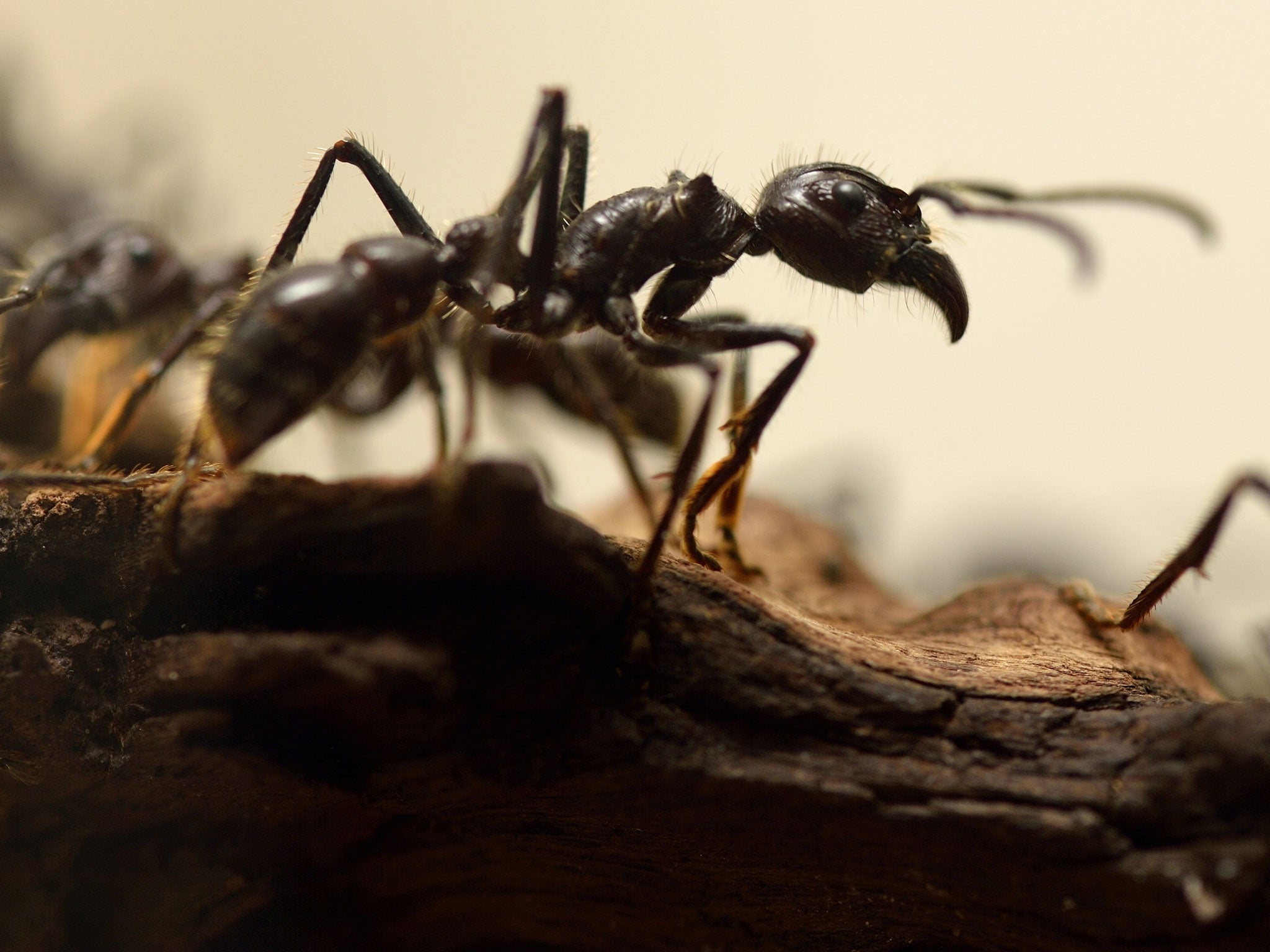Houston ... we have ants in space! Colony of 800 arrives on International Space Station
It's hoped the way they adapt their foraging behavior will help to develop smarter robots

Your support helps us to tell the story
From reproductive rights to climate change to Big Tech, The Independent is on the ground when the story is developing. Whether it's investigating the financials of Elon Musk's pro-Trump PAC or producing our latest documentary, 'The A Word', which shines a light on the American women fighting for reproductive rights, we know how important it is to parse out the facts from the messaging.
At such a critical moment in US history, we need reporters on the ground. Your donation allows us to keep sending journalists to speak to both sides of the story.
The Independent is trusted by Americans across the entire political spectrum. And unlike many other quality news outlets, we choose not to lock Americans out of our reporting and analysis with paywalls. We believe quality journalism should be available to everyone, paid for by those who can afford it.
Your support makes all the difference.A colony of ants have set up home in the International Space Station as part of an experiment to see how their behavior changes in an environment of low gravity.
Scientists are hoping to observe how they adapt their foraging behavior under changing circumstances and use the data to help develop smarter robots.
The 800 common ants (Tetramorium caespitum) - the type we're used to seeing on pavements and picnics - are living in eight compartments with about 100 ants in each compartment.
Engineers on the ISS have erected and taken down barriers within the compartments, so the ants have gone from high density areas to ones of lower density.
Ants have evolved collective behavior, or what is known in robotics as 'distributed algorithms', to move around during foraging, and the experiment should shed some light and how this evolves under varying ant densities in microgravity.
"When ant densities are high, each ant thoroughly searches one small area in a circular, 'random' walk," said Stefanie Countryman, the programme director.
"When ant densities are low, each ant searches by walking in a relatively straight line, allowing it to cover more ground."
It’s hoped the data can be used to build robots that can ‘forage’ for themselves - perhaps by searching for people in a building too dangerous for people to enter.
Professor Deborah M. Gordon, of Standford University, an expert on animal collective behavior who helped devise the experiment, told Space.com that some really interesting biological changes occur in microgravity, for example, the way that nutrients circulate around cells or the way genes are expressed
“We have a lot to learn about how collective behavior changes in space,” said Prof Gordon.
The behavior of the ants is being beamed back to earth, allowing school children to take part in the experiment. The ants arrived on the ISS aboard an Orbital Sciences Cygnus spacecraft on 12 January.
In 2012 a Johnson Jumper (Phidippus johnsoni) spider was sent to the ISS; scientists found that it adapted to microgravity well after a short time but that when it returned to earth it kept falling on its back after jumping, but then readapted to earth's gravity again after a short while.
Join our commenting forum
Join thought-provoking conversations, follow other Independent readers and see their replies
Comments